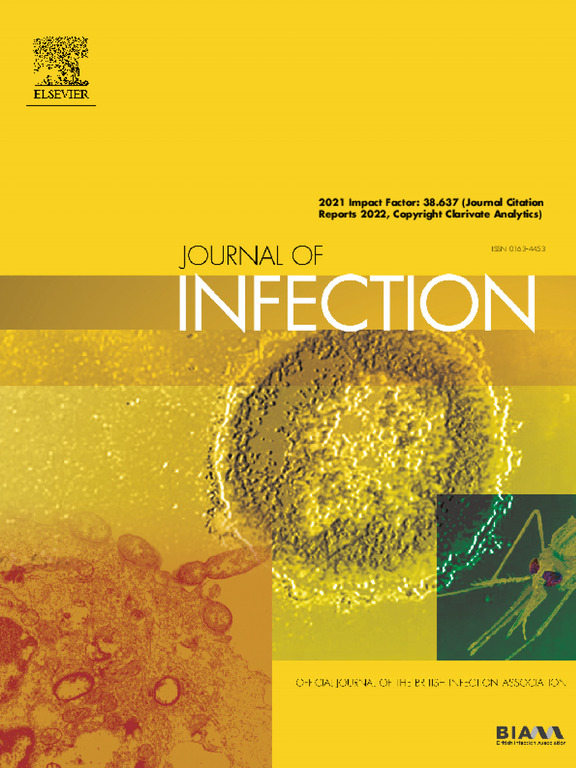High rates of Dientamoeba fragilis and Blastocystis species in children’s stool but minor clinical significance
IF 14.3
1区 医学
Q1 INFECTIOUS DISEASES
引用次数: 0
Abstract
Objective
The aim of this study was to describe the epidemiology and the clinical significance of Dientamoeba fragilis (DF) and Blastocystis (Bs) in pediatric stool samples.
Methods
A historical cohort study of children under 18 years of age who underwent stool multiplex PCR for bacteria and parasites. DF and Bs results were not routinely reported. We assessed the frequency of various stool microorganisms and analyzed a composite of symptoms occurring within 14 days before testing and four post-test composite outcomes (symptoms, further medical evaluation, prescriptions of symptomatic treatment or antibiotics). Comparisons were made between children mono-infected with DF or Bs, those with negative PCR results, and those positive for microorganisms with established pathogenicity.
Results
Of 36,008 eligible children, 32.5% were positive for DF and 7.9% for Bs. Children positive for DF or Bs did not exhibit higher odds for pre- or post-test composite outcomes compared to those with all-negative PCR results, except for increased rates of abdominal pain and referrals for anti-TTG testing among DF-positive children. Antibiotic prescription was significantly more common among those positive for microorganisms of known pathogenicity.
Conclusions
While DF and Bs are frequently detected in pediatric stool samples, their clinical significance appears to be limited.
儿童粪便中的脆弱片阿米巴和布拉氏囊虫比率很高,但临床意义不大。
研究目的本研究旨在描述小儿粪便样本中脆弱片阿米巴(DF)和囊尾蚴(Bs)的流行病学和临床意义:方法:对接受粪便多重 PCR 检测细菌和寄生虫的 18 岁以下儿童进行历史性队列研究。DF 和 Bs 结果未作常规报告。我们评估了各种粪便微生物的频率,并分析了检测前 14 天内出现的综合症状以及检测后的四项综合结果(症状、进一步医学评估、对症治疗或抗生素处方)。结果显示,在 36008 名符合条件的儿童中,有 1,000 多名儿童感染了 DF 或 Bs,有 1,000 多名儿童的 PCR 结果为阴性,有 1,000 多名儿童的 PCR 结果为阳性:在 36 008 名符合条件的儿童中,DF 阳性的占 32.5%,Bs 阳性的占 7.9%。与 PCR 结果全部阴性的儿童相比,DF 或 Bs 阳性的儿童在检测前或检测后的综合结果中并没有表现出更高的几率,但 DF 阳性儿童中腹痛和转诊进行抗-TTG 检测的比例有所增加。在已知致病性微生物呈阳性的儿童中,抗生素处方明显更常见:结论:虽然在儿科粪便样本中经常检测到 DF 和 Bs,但其临床意义似乎有限。
本文章由计算机程序翻译,如有差异,请以英文原文为准。
求助全文
约1分钟内获得全文
求助全文
来源期刊

Journal of Infection
医学-传染病学
CiteScore
45.90
自引率
3.20%
发文量
475
审稿时长
16 days
期刊介绍:
The Journal of Infection publishes original papers on all aspects of infection - clinical, microbiological and epidemiological. The Journal seeks to bring together knowledge from all specialties involved in infection research and clinical practice, and present the best work in the ever-changing field of infection.
Each issue brings you Editorials that describe current or controversial topics of interest, high quality Reviews to keep you in touch with the latest developments in specific fields of interest, an Epidemiology section reporting studies in the hospital and the general community, and a lively correspondence section.
 求助内容:
求助内容: 应助结果提醒方式:
应助结果提醒方式:


